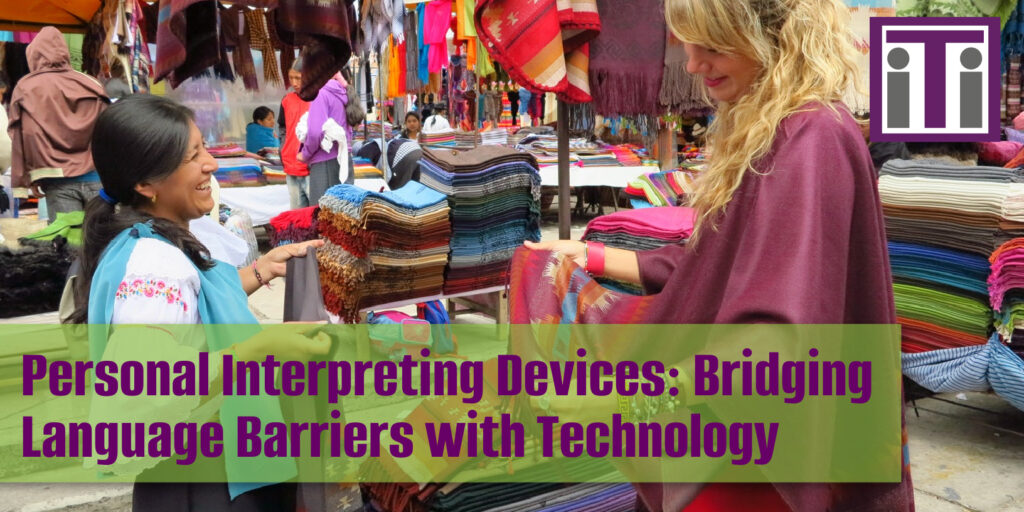The Vital Role of Medical Interpreters
Reading Time: ~6 mins

In the intricate world of healthcare, clear and accurate communication is not just important—it’s imperative. As our communities become increasingly diverse, the need for professional medical interpreters has surged, becoming a cornerstone of patient-centered care.
At iTi, we are dedicated to enhancing healthcare outcomes through expert healthcare language services, bridging the language gap between healthcare providers and patients. This article discusses the essential role of Qualified Medical Interpreters, outlining their impact, training, and the standards governing this specialized profession.
The Critical Function of Medical Interpreters
Qualified Medical Interpreters are highly trained professionals who facilitate communication between healthcare providers and patients who do not share a common language. Their role extends beyond mere language translation; they ensure that both parties fully understand medical information, procedures, and consent forms, thereby:
- Enhancing patient comprehension and cooperation.
- Reducing misunderstandings that can lead to misdiagnosis or inappropriate treatment.
- Ensuring informed consent by accurately conveying medical information.
- Supporting cultural competence by bridging cultural differences and expectations.
Specialized Training for Medical Interpreters
All professional interpreters undergo rigorous training, and medical interpreters take it a step further, learning specialized techniques and protocols specific to the healthcare field. This includes familiarity with medical terminology, ethical considerations unique to healthcare, and an understanding of the diverse cultural beliefs about health and illness that patients might hold. Medical interpreters must also navigate complex emotional landscapes, ensuring their work supports patient dignity and autonomy.
While bilingual staff members can be a tremendous asset when working with limited English proficiency, without specialized training they can also be a liability. For more on this topic, check out our post Should My Bilingual Employees Act as Medical Interpreters?
Professional Standards and Certification
The medical interpreting profession is bound by a strict code of ethics and professional standards that prioritize patient welfare and confidentiality. Two major certification bodies in the United States—the Certification Commission for Healthcare Interpreters (CCHI) and the National Board of Certification for Medical Interpreters (NBCMI)—set the benchmark for professional competence in medical interpreting.
These certifications affirm an interpreter’s proficiency and reliability, ensuring healthcare providers can trust the quality of communication and the ethical standards upheld during medical interactions.
Legal Framework and Compliance
Legal mandates reinforce the necessity of medical interpreting in healthcare settings. Laws such as Title VI of the Civil Rights Act, the Americans with Disabilities Act, and section 1557 of the Affordable Care Act, among others, require healthcare providers to offer language access services, including Qualified Medical Interpreters, to ensure equitable care for all patients, regardless of language proficiency.
Criteria for a Qualified Medical Interpreter
A Qualified Medical Interpreter:
- Is at least 18 years of age.
- Has a high school diploma or equivalent (GED).
- Has proof of bilingualism and literacy through a validated language proficiency test.
- Can provide a certificate of completion for a professional interpreter training course of at least 40 hours.
At iTi, we only assign Qualified Medical Interpreters for healthcare sessions. Additionally, Interpreters and Translators, Inc. is an accredited provider for the Medical Interpreter Training course and can provide it to our clients’ bilingual employees as well as any interpreter who is seeking to achieve this qualification.
The Impact of Medical Interpreting on Healthcare Quality
The presence of qualified medical interpreters has a profound impact on healthcare quality and patient satisfaction. Studies have shown that effective medical interpreting can lead to:
- Improved clinical outcomes through better patient understanding and adherence to treatment plans.
- Decreased hospital readmission rates by ensuring clear post-discharge instructions.
- Enhanced patient satisfaction by fostering a sense of respect and understanding.
- Risk management by reducing medical errors associated with communication barriers.
Best Practices When Working with Medical Interpreters
Medical interpreters are required to follow a strict set of protocols. It follows that healthcare professionals should be aware of these protocols and the best practices to work with medical interpreters in order to have the most effective sessions possible.
Get a free printable version of our guide to Working with a Medical Interpreter
| Download the Guide |
Dos and Don’ts When Working with Medical Interpreters:
The Dos:
- DO use a trained, Qualified Medical Interpreter.
- DO know how to access an interpreter: in-person, over-the-phone, or via a video interface.
- DO remember that the interpreter will interpret everything that is said by the patient and the provider.
- DO document the name of the interpreter. If a family member is interpreting, keep the qualified interpreter present during the session.
- DO share any important issues about the patient and any medical terminology that might come up during the session.
- DO introduce the interpreter to the patient.
- DO speak directly to the patient.
- DO let the patient know the interpreter might take notes but will destroy them after the session.
The Don’ts:
- DON’T address comments to the patient while looking at the interpreter or refer to the patient in the third person.
- DON’T shout, speak too slowly or too quickly. Speak at a normal pace directly to the patient.
- DON’T have side conversations with the interpreter or other clinicians in front of the patient.
- DON’T use complicated jargon or idiomatic expressions that are difficult to interpret.
- DON’T leave the interpreter alone with the patient.
- DON’T expect the interpreter to bathe, feed, or keep company with the patient. The interpreter’s role is only to interpret!
Conclusion: A Call for More Medical Interpreters
As the demand for medical interpreters grows, so does the need for ongoing training and certification to ensure these professionals can meet the evolving needs of the healthcare industry. iTi is committed to leading the way in providing high-quality medical interpreting services, recognizing that effective communication is a key component of patient safety, satisfaction, and overall healthcare excellence.
If you are interested in becoming a Qualified Medical Interpreter, check out our training calendar for the next available online course.
In embracing the invaluable role of medical interpreters, we can ensure that all patients, regardless of language or cultural background, receive the care and understanding they deserve. Together, we can build a more inclusive and equitable healthcare system for everyone.
| Talk to an Expert |
Interpreters and Translators, Inc. is a full-service language solutions company based in Glastonbury, Connecticut. iTi is an NMSDC-certified minority owned business.







